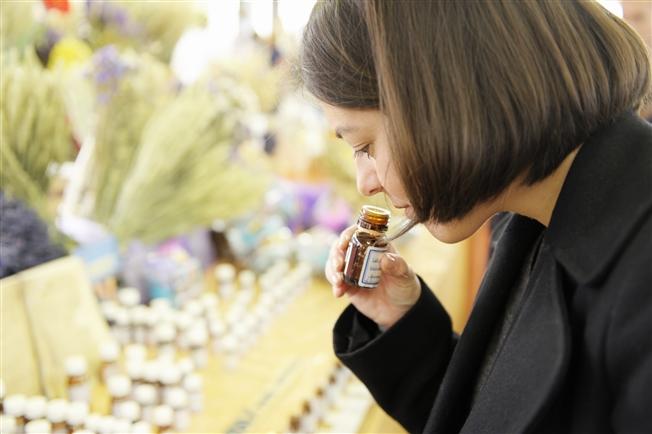What essential oil is best for anxiety?

For thousands of years, aromatherapy and essential oils have been used to treat and alleviate illnesses of all kinds. But with a renewed interest in holistic treatment options, the past decade has seen a bit of "comeback" for essential oils—particularly in the treatment or management of stress and anxiety.
Anxiety disorders are the most common mental illness in the United States, affecting approximately 40 million adults. Essential oils are an easy and natural addition to a more complete wellness and treatment plan.
How do essential oils work?
Put simply, certain scents have the ability to trigger emotional and physical reactions.
The autonomic nervous system is the part of our brain that controls our "fight-or-flight" response and factors like our heart and respiratory rate. When you're facing a stressful situation, this part of the brain activates and your body responds with physical symptoms like shallow breathing, a quicker pulse and a rush of adrenaline. However, certain scents have the ability to slow down or prevent this response.
So the next time you're preparing for a presentation at work or feeling nervous about a tough conversation with a loved one, the right scent can help you feel a little more relaxed.
What's considered a calming scent will vary from person to person, but Newton recommends the following scents based on their well-documented calming properties:
- Lavender
- Bergamot
- Vetiver
- Ylang Ylang
- Roman chamomile
- Sweet orange
- Frankincense
How to use essential oils
There are a lot of different ways that you can start to incorporate essential oils into your daily routine. Many people use a diffuser, a device that disperses essential oils into the air through a gentle mist. You can try a diffuser in your work space or in your living room or bedroom to get the relaxing effects of your scent of choice. But there are other options, too.
Many essential oils are safe to use on your skin and fabrics in your home. Try adding a few drops of oil to unscented body lotion or spritzing an essential oil spray directly onto bedding, a couch or a blanket that you use often. You can even apply some oils directly onto your skin in areas like your wrists, behind your ears, your neck or the bottom of your feet. But before you start using these oils in multiple places on your skin, test it on a small patch of skin first to make sure it does not cause an allergic reaction or any itching, redness or irritation.
It is also important to make sure you are not buying an essential oil that is polluted with synthetic materials, fillers or toxins.
Not all essential oils are created equal and buying the right product will make the world a difference when using them to help with things such as anxiety. It is very, very important to educate yourself on how to use essential oils safely. Talk to your primary care provider, a dermatologist or a certified aromatherapist before you use any new product.
Is aromatherapy a complementary therapy?
It can be helpful to use essential oils for anxiety and, for people who have mild anxiety or who rarely find themselves feeling anxious, these oils may be enough to help manage your symptoms. However, for moderate or severe anxiety, using essential oils should not be your only treatment method.
Essential oils are an easy and natural addition to a wellness plan, but they should be used in conjunction with therapy, mindfulness, meditation or whatever other treatment plan you and your health care provider already have in place to manage your anxiety symptoms.
Next steps:
Learn about Mirmont Treatment Center
How group psychotherapy is helping women heal
Want to get the latest health and wellness articles delivered right to your inbox?
Subscribe to the Well Ahead Newsletter.
 Content you want, delivered to your inbox
Content you want, delivered to your inbox
Want to get the latest health and wellness articles delivered right to your inbox?
Subscribe to the Well Ahead Newsletter.
